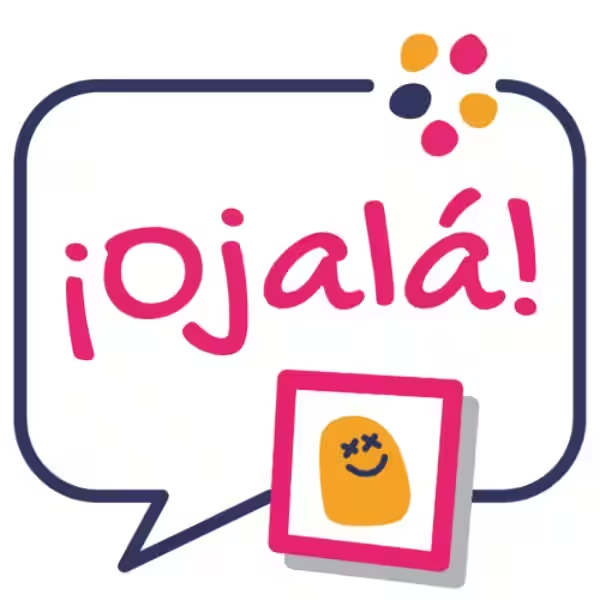
The Spanish word “ojalá” is a familiar phrase brimming with hope and desire. It’s commonly used to express wishes and aspirations, like “Ojalá llueva pronto” (I hope it rains soon). But beyond its surface meaning, “ojalá” carries a rich history and deeper significance, tracing its roots back to the Arabic language and its cultural influence on the Spanish-speaking world.
Origin and Meaning: A Window into the Past
“Ojalá” finds its origin in the Arabic phrase “in sha’a Allah,” which translates to “if God wills” or “God willing.” This phrase reflects a key principle in Islamic faith, acknowledging the ultimate power of God in determining outcomes. While “ojalá” has evolved over time, this origin reveals a connection to a deeper sense of faith and reliance on a higher power. It’s not just a mere wish, but an expression of hope with a tinge of submission to a divine plan.
Grammatical Structure: Unveiling the Subjunctive
The grammatical structure of “ojalá” further clarifies its meaning. It resembles an “if/would” statement in the subjunctive mood. For instance, “Si dios me permitiría que tuviera un millón de dólares” (If God would allow that I had a million dollars) echoes the same sentiment as “Ojalá tuviera un millón de dólares” (If God would allow that I had a million dollars). This similarity points to a shared structure and meaning, both suggesting a conditional desire dependent on divine permission.
The Subjunctive Mood: A Bridge of Uncertainty
The subjunctive mood plays a crucial role in both Arabic and Spanish languages. It’s used to express hypothetical situations, wishes, and desires, often conveying a sense of uncertainty and dependence on factors beyond human control. In the case of “ojalá,” the subjunctive mood emphasizes the reliance on God’s will for the fulfillment of the expressed hope.
Implications: Beyond the Superficial
Understanding the origin and grammatical structure of “ojalá” sheds light on its nuanced meaning. It’s not simply a wish but a prayerful expression acknowledging divine power and seeking its intervention. This interpretation adds depth and complexity to the phrase, highlighting its cultural and religious significance.
A Powerful Expression of Faith and Hope
When we use “ojalá,” we are not simply expressing a casual desire. We are invoking a higher power, acknowledging that the fulfillment of our wishes depends on factors beyond our control. It’s a powerful expression of hope and faith, demonstrating the enduring influence of Arabic culture on the Spanish language and its usage.
Conclusion: Embracing the Richness of “Ojalá”
The next time you hear or use “ojalá,” take a moment to appreciate its profound meaning. It’s not just a whimsical wish; it’s a powerful expression of hope and faith, acknowledging the role of a higher power in fulfilling desires. By tracing its origins and analyzing its grammatical structure, we gain a deeper understanding of its cultural and religious context. “Ojalá” is a testament to the interconnectedness of languages, cultures, and beliefs, reminding us of the beauty and richness that arises from the exchange of ideas and influences.
Frequently Asked Questions about “Ojalá”
What does “Ojalá” mean in Arabic?
“Ojalá” comes from the Arabic phrase “in sha’a Allah,” which means “if God wills.”
Is “Ojalá” still a religious expression in Spanish?
While its origin is religious, “ojalá” has lost its religious connotation and now simply means “I hope.”
How is “Ojalá” used in Spanish?
“Ojalá” is used at the beginning of a sentence to express hope. For example, “Ojalá llueva hoy” means “I hope it rains today.”
What is the cultural significance of “Ojalá”?
“Ojalá” is a popular and widely used word in the Spanish-speaking world, demonstrating the influence of Arabic language and culture on Spanish.
- Learn the origin of the word “Ojalá” – It comes from the Arabic “in sha’a Allah” meaning “if God wills,” highlighting the role of faith in its meaning.
- Understand that “Ojalá” is used to express hope or wish, not just desire.
- Recognize the grammatical structure of “Ojalá” as similar to “if/would” statements in the subjunctive mood.
- Use it at the beginning of sentences to express hope, as in “Ojalá llueva hoy” (I hope it rains today).
- Practice pronouncing “Ojalá” correctly: “Oh-ha-LAH”.
- Explore other words of Arabic origin in Spanish to deepen your understanding of language evolution.
- Share this interesting fact with friends who are learning Spanish!
- Consider the cultural significance of “Ojalá” and its connection to the history of Spain.
- Remember that “Ojalá” is a beautiful and versatile word, capturing optimism and hope.








